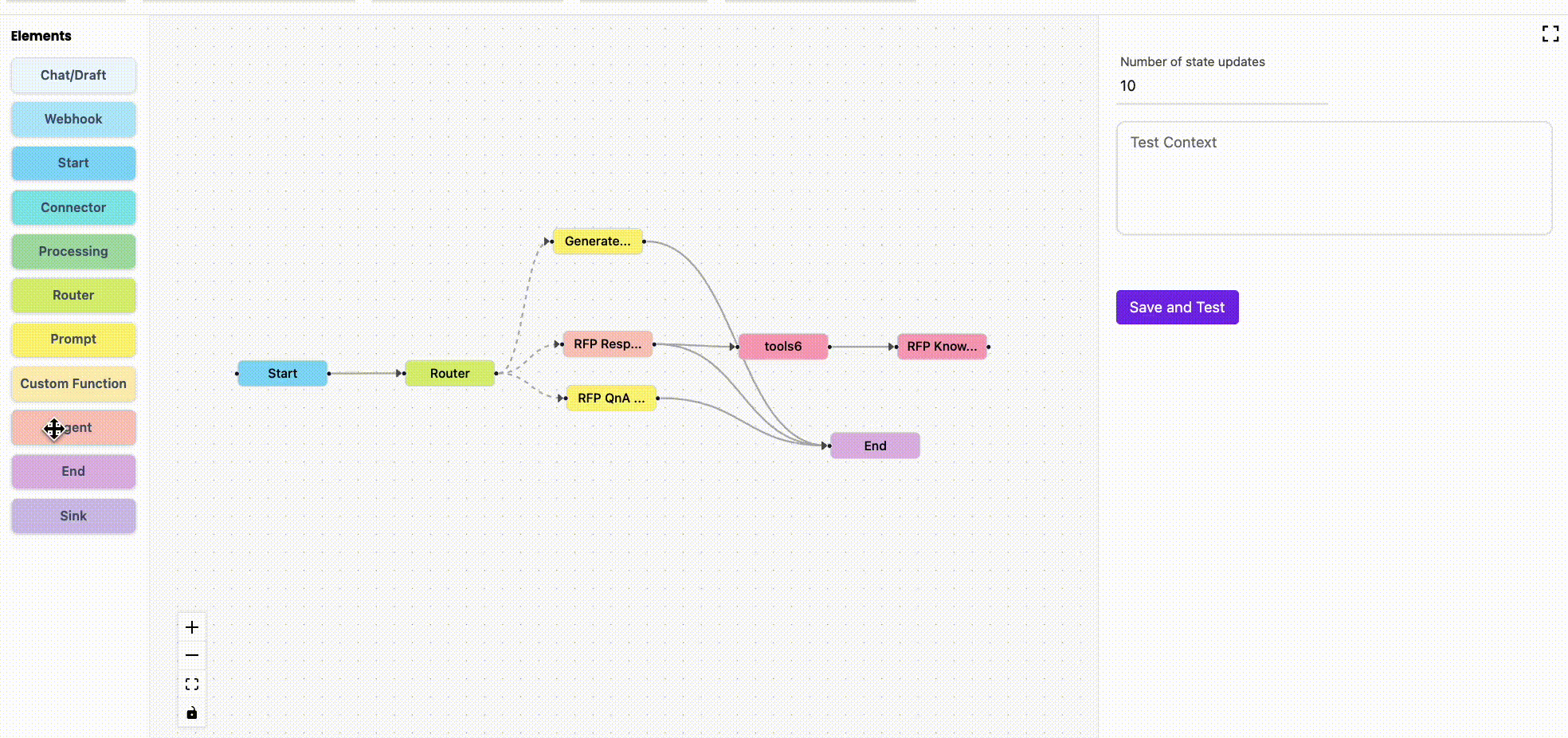Enterprises today are looking beyond basic chatbots powered by Retrieval-Augmented Generation (RAG) to innovate in business process automation. Agents are revealing unprecedented potential to replace conventional application logic, dynamically executing functions that handle traditional processing tasks while taking intelligent actions. With significant advancements in agent-friendly LLMs, including OpenAI’s O1 and Anthropic’s Sonnet 3.5 v2, businesses can now imagine Intelligent Document Processing (IDP) workflows that not only handle OCR, extraction, validation, and data sinking but also integrate human-in-the-loop interventions and contextual conversations.
Earlier this year, Karini AI pioneered foundational capabilities for building agentic workflows and multi-agent systems, supporting our customers in creating generative business intelligence (GenBI) applications and knowledge graph agents. However, these initial capabilities (Agent 1.0) were purpose-built for specific use cases.
Today, we’re thrilled to announce Karini AI Agent 2.0, our most advanced agentic solution. Agent 2.0 introduces enhanced agent control that aligns with the needs of complex production environments, where workflows evolve and demand adaptive, precise task management.
Swagelok Southeast Texas has reimagined its procure-to-pay process with Karini’s Agent 2.0, leveraging omnichannel capabilities through automated intelligent document processing and an MS Teams chatbot. This enables its customer service representatives to deliver real-time support to customers.
“We’ve streamlined workflows, reduced onboarding time by >50%, and are confident Karini will unlock more use cases to further increase productivity and customer satisfaction while delivering a fast ROI.”
--- Peter Hory, Director of IT (SST)
Agent 2.0: Redefining Workflow Design
Designing complex, adaptive workflows with Karini AI’s Agent 2.0 has never been more accessible. Workflows allow agents to revisit prior steps, evaluate progress, make informed decisions, and adjust their actions based on real-time insights. This adaptive functionality is invaluable when agents need to refine strategies or acquire additional data, significantly enhancing automated processes' flexibility, responsiveness, and precision.

For instance, consider a Request for Proposal (RFP) response application where workflows are triggered by a chat or drafting message. Depending on the message's intent and content, a routing agent dynamically selects one of several downstream agents. Each agent is context-aware and capable of reasoning with insights from preceding nodes in the workflow, creating an efficient, state-driven process.
Key Features of Agent 2.0
- Omnichannel Workflow Triggers: Workflows can be initiated through webhook APIs or chat messages, enabling a seamless omnichannel experience. The webhook API supports custom metadata, providing additional context for downstream workflow nodes.
- Real-time Processing Nodes: Processing nodes offer OCR, PII masking, and image-to-text capabilities and serve as a document cache for users. Accessible to all workflow nodes, this cache supports applications with large documents or long-term memory requirements.
- Versatile Document Cache Modes: The document cache operates in semantic retrieval, document retrieval, or ephemeral modes, allowing you to tailor data management strategies to specific use cases.
- Flexible Workflow Node Types: Workflow nodes include prompts, agents, custom functions, and routers, which can be sequenced to fit your unique requirements.
- Advanced Router Nodes: Special router nodes decompose tasks into smaller units, improving latency, reducing unnecessary processing loops, and simplifying troubleshooting.
- Pre-Deployment Testing and Tracing: Test workflows and trace executions before production deployment, with independent node testing available for granular validation.
- Extensive Tool Integrations: Agent nodes support databases, knowledge bases, business applications, messaging systems, knowledge graphs, REST APIs, Lambda, prompts, and more, enabling real-time data integration to enhance decision-making.
- Selective Semantic Cache Management: Enable managed semantic caching for each node to save LLM costs and reduce latency as needed.
- Built-in Production-Grade Monitoring: Track conversation histories, trace calls, and monitor message logs to ensure high reliability in production environments.
As Generative AI models continue to evolve, agents will play a pivotal role in shaping the next generation of intelligent applications. Whether building sophisticated business automation workflows or creating intelligent chatbots, Karini AI’s Agent 2.0 delivers the adaptability, control, and robust functionality required to transform your ideas into impactful solutions.
Transform Your Enterprise Today
Ready to revolutionize your business processes with intelligent automation? Schedule a demo to see Karini AI’s Agent 2.0 in action and discover how Karini AI can transform your enterprise workflows. Early adopters can access exclusive implementation support and customized solutions tailored to their industry needs. Contact our solutions team now to begin your AI transformation journey.
